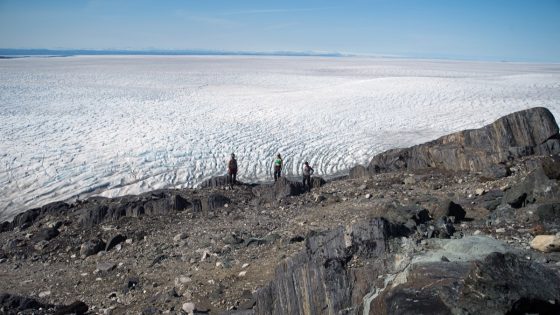Geologists from MIT and Oxford University have made a groundbreaking discovery in Greenland, unearthing rocks, the natural time capsules, that offer a glimpse into Earth’s ancient past.
These rocks, estimated to be about 3.7 billion years old, contain the earliest remnants of the planet’s magnetic field, shedding light on its early conditions and potential implications for the emergence of life.
The findings, published in the Journal of Geophysical Research, indicate that the ancient magnetic field had a strength of at least 15 microtesla, comparable to Earth’s present-day magnetic field. This revelation extends the timeline of Earth’s magnetic field by an additional 200 million years, hinting at its crucial role in shaping the planet’s habitability.
Dr. Claire Nichols, now an associate professor at Oxford University, highlighted the significance of Earth’s magnetic field in creating a conducive environment for life. “Our magnetic field protects us from harmful radiation and contributes to the stability of our oceans and atmosphere,” she explains.
The research team, led by Dr. Nichols and Professor Benjamin Weiss from MIT, embarked on an expedition to Greenland’s Isua Supracrustal Belt, a region known for its ancient rock formations. By analyzing banded iron formations within these rocks, the scientists aimed to decipher the magnetic signatures preserved since the rocks’ formation billions of years ago.
Through meticulous laboratory experiments, the team confirmed that the rocks retained an ancient magnetic field, despite undergoing subsequent thermal events. This resilience suggests that Earth’s early magnetic field was sustained by a different power source than the one fueling today’s magnetic field, challenging existing theories about its origins.
“We’re now questioning how Earth managed to maintain such a robust magnetic field in its early stages,” remarks Professor Weiss. “This discovery not only deepens our understanding of Earth’s history but also has implications for our exploration of habitable planets beyond our solar system.”
The research not only pushes back the timeline of Earth’s magnetic field but also raises intriguing questions about the planet’s dynamic evolution and its potential for fostering life.
As humanity continues to unravel the mysteries of our universe, ancient rocks serve as invaluable windows into Earth’s distant past and its enduring magnetic legacy.
Source Agencies



